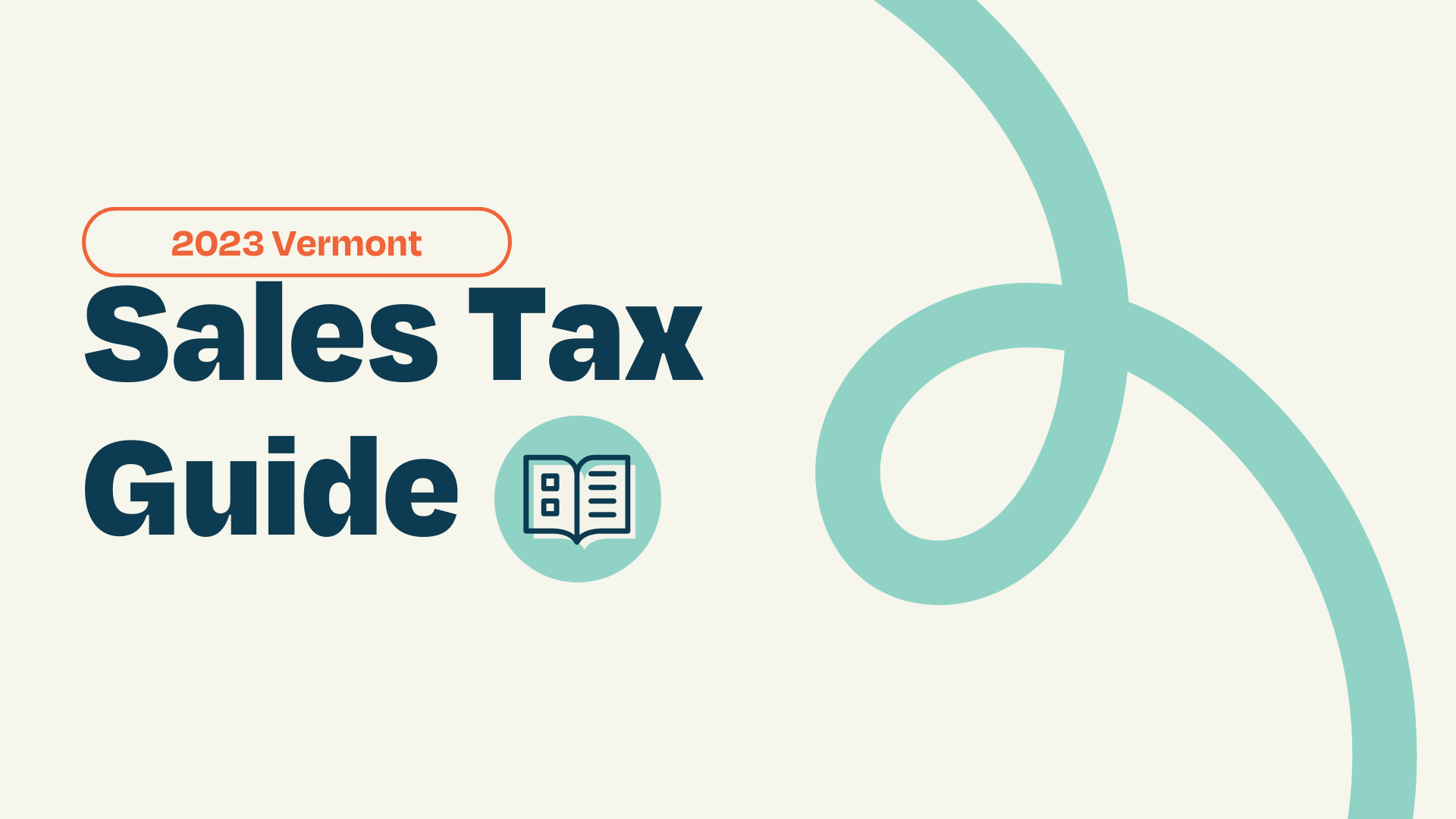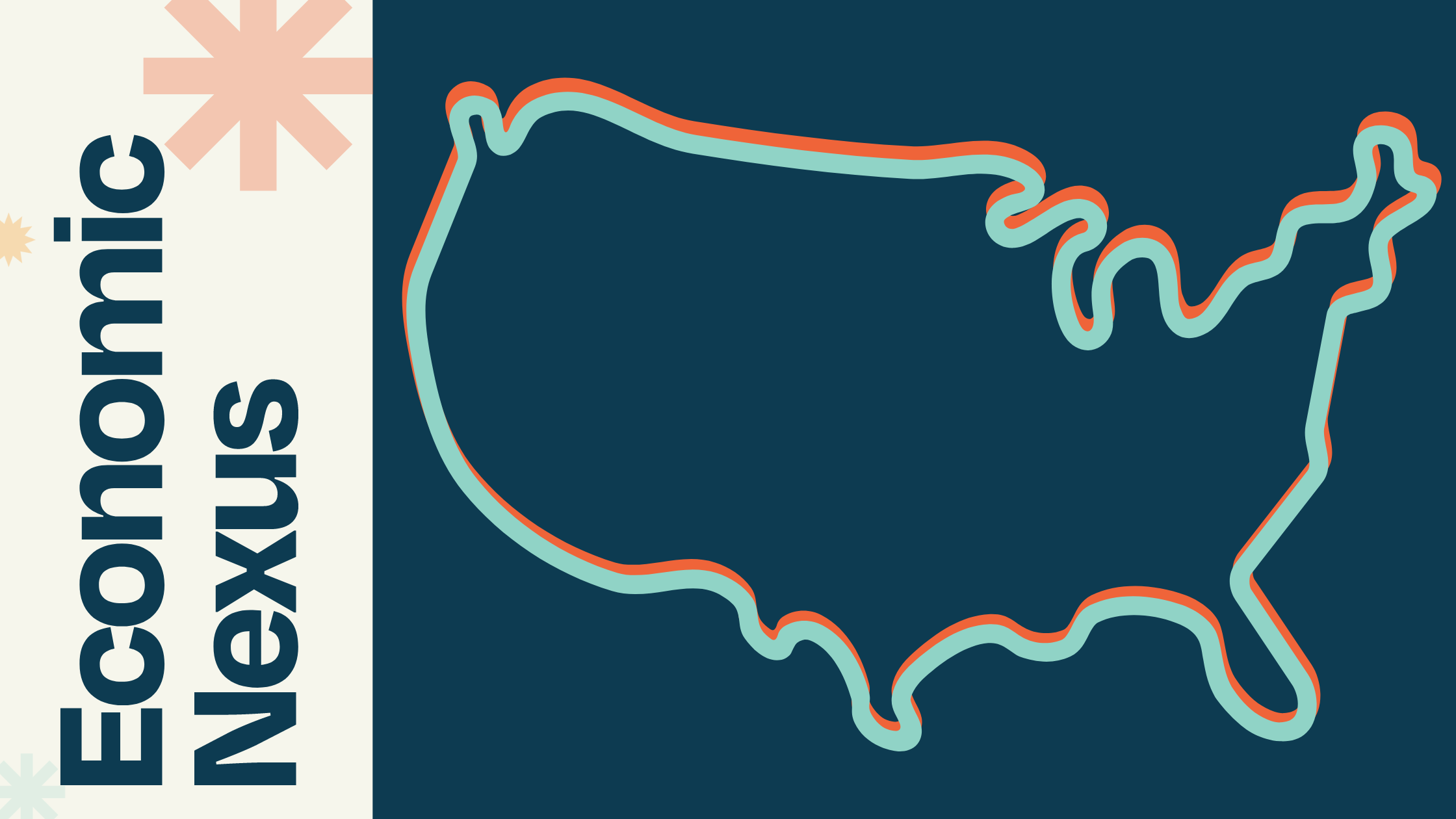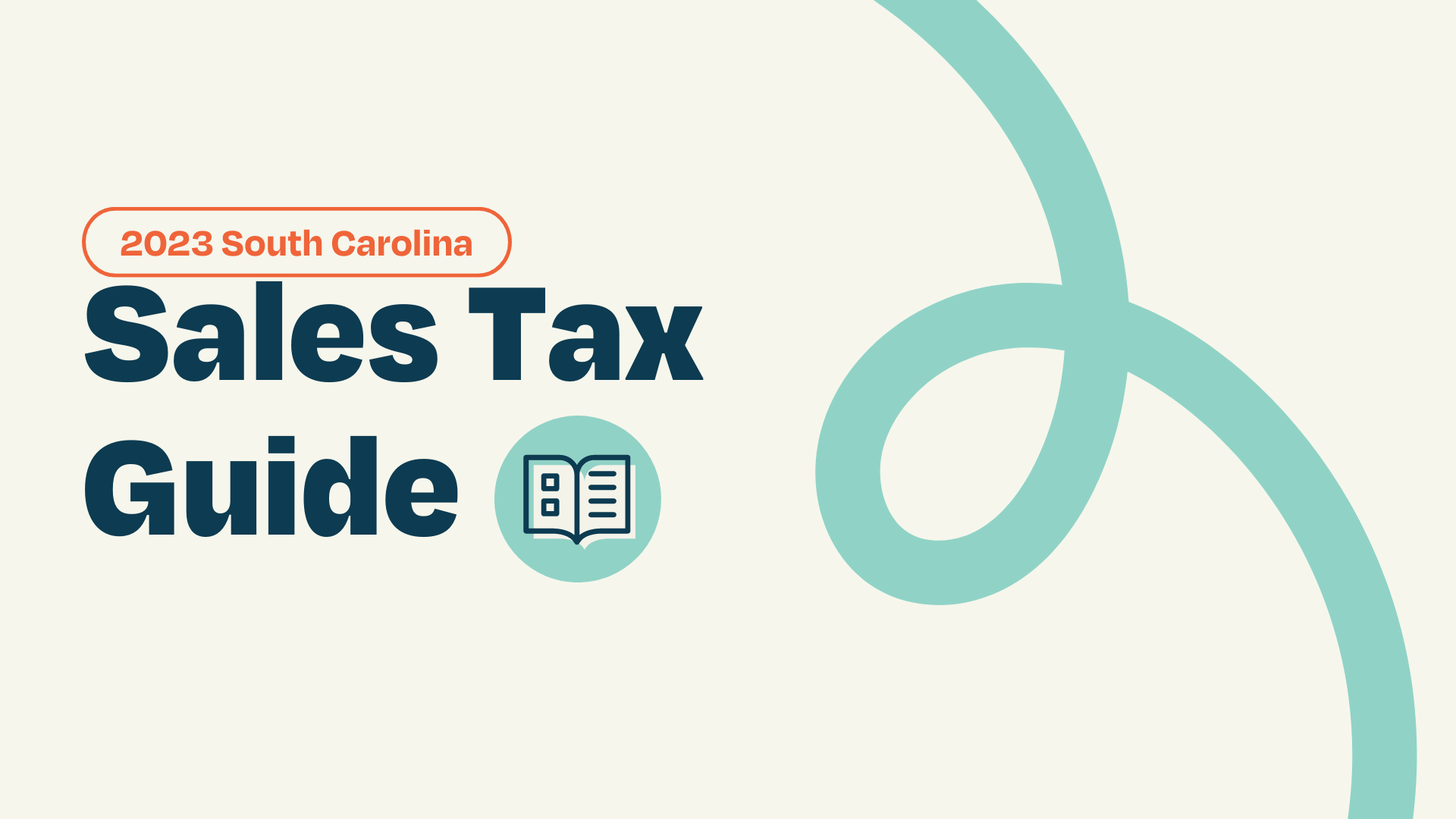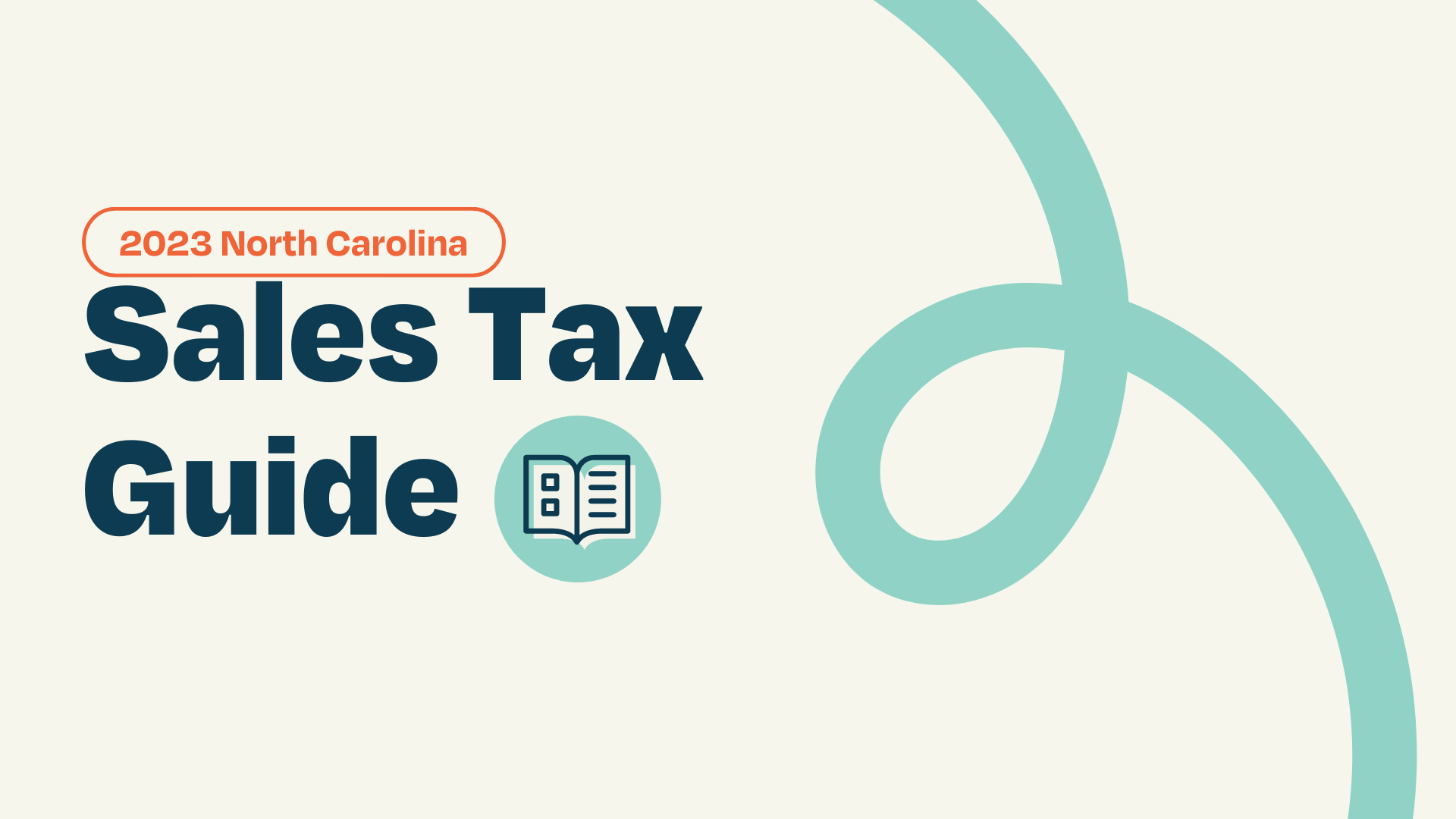1 min read
Economic Nexus by State: A Comprehensive Guide
As businesses continue to expand their online presence, understanding the implications of economic nexus has become increasingly important. Economic...

Welcome to the world of Vermont sales tax, where the maple syrup flows freely and the tax guidelines are as crisp as autumn leaves. Whether you're new to the Green Mountain State's business landscape or a seasoned entrepreneur looking to brush up on your tax knowledge, our comprehensive guide is here to help.
From determining nexus to registration, collection, filing, and even avoiding common mistakes, we'll navigate the winding Vermont tax trails together. So, grab your favorite flannel, sit back, and let's embark on this journey through the Vermont sales tax wilderness.
|
Table of Contents |
When it comes to sales tax, knowing who to reach out to for help is as important as understanding the tax rules themselves. After all, even the most seasoned tax hiker may need a guide now and then.
The Vermont Department of Taxes is the state agency responsible for managing sales tax in Vermont.
Here are the key contact details:
|
Mailing Address |
Vermont Department of Taxes PO Box 547 Montpelier, VT 05601-0547 |
|
Street Address |
Vermont Department of Taxes 133 State Street Montpelier, VT 05633-1401 |
|
Phone Numbers |
(802) 828-2551 |
|
|
|
|
Website |
On the department's website, you'll find a wealth of resources, including the latest tax updates, forms, and guides. You can also access the myVTax portal, an online system for filing returns, making payments, and managing your tax accounts.
So, whether you have a simple question or a complex tax conundrum, the friendly folks at the Vermont Department of Taxes are ready to help you navigate the Green Mountain State’s sales tax terrain.
Before embarking on your Vermont sales tax journey, it's essential to determine whether your business has a sales tax nexus in the state. Establishing nexus means you have a significant connection or presence in Vermont, which requires you to collect, file, and remit sales tax.
Nexus can be established through various means, including physical presence, economic activity, affiliate relationships, click-through referrals, and marketplace facilitation.
Let's explore each of these nexus-creating factors in more detail.
Physical nexus is established when your business has a tangible presence in Vermont, such as:
Owning or leasing property, including offices, warehouses, or retail locations
Having employees or sales representatives in the state
Utilizing a third-party agent or contractor to perform services on your behalf in Vermont
Economic nexus is triggered when a business reaches a certain sales threshold within the state, even without a physical presence. In Vermont, economic nexus is established if you:
Have gross sales exceeding $100,000, or
Engage in 200 or more separate transactions in the state during any 12-month period
Affiliate nexus occurs when a business has a close relationship with another company in Vermont, such as a parent, subsidiary, or sister company. This connection can create a sales tax obligation for the out-of-state business if the in-state affiliate:
Sells similar products under a similar business name, or
Uses trademarks, service marks, or trade names that are similar to those used by the out-of-state business
Click-through nexus is established when a business has an agreement with a Vermont-based affiliate (such as a blogger or influencer) that refers customers to the out-of-state company's website through a unique link. If the referrals generate more than $10,000 in sales within the previous 12 months, click-through nexus is triggered.
Marketplace nexus occurs when a marketplace facilitator, such as Amazon or eBay, conducts sales on behalf of third-party sellers. In Vermont, marketplace facilitators are responsible for collecting and remitting sales tax on behalf of their sellers, provided they meet the state's economic nexus threshold.
Yes, Vermont has use tax laws that apply to purchases made outside the state but used, consumed, or stored within Vermont. Use tax is designed to ensure fair competition among in-state and out-of-state businesses and to prevent tax avoidance. Vermont residents and businesses are responsible for reporting and paying use tax on their tax returns if they haven't already paid sales tax on their purchases.
Once you've established that you have nexus in Vermont and need to collect sales tax, the next step is to register for a Vermont Sales Tax License. This is your ticket to legally conduct sales in the Green Mountain State. But don't worry, the process is straightforward and we're here to guide you through each step.
To register for a Vermont Sales Tax License, you'll need to fill out the Business Tax Application (Form BR-400). This form can be completed online through the myVTax portal, which is the Vermont Department of Taxes' online tax management system.
Here's a step-by-step guide to help you navigate the process:
Visit the myVTax portal: Start by visiting the myVTax portal ↗. If you're a first-time user, you'll need to create an account.
Start a new application: Once you've logged in, locate the "I Want To" section and select the "Start a New Business Tax Application" option.
Complete the application: The application form will ask for basic information about your business, including the legal name, physical address, mailing address, and nature of your business. You'll also need to provide details about your business entity type (e.g., sole proprietorship, partnership, corporation), ownership structure, and expected sales activity.
Designate a responsible party: As part of the application, you'll need to designate an individual or entity responsible for managing your sales tax obligations. This could be an owner, partner, officer, or another authorized person.
Submit the application: After you've completed all sections of the application, review your responses to ensure accuracy, then submit the application. You'll receive a confirmation that your application has been submitted and is under review.
Wait for your Sales Tax License: The Vermont Department of Taxes will review your application and, if approved, will issue your Sales Tax License. This license should be displayed prominently at your place of business.
Registering for Vermont sales tax is free! Isn't that great news!
Yes, you'll need a Federal Tax ID Number, also known as an Employer Identification Number (EIN), to register for a Vermont Sales Tax License. This number is used by the Internal Revenue Service (IRS) to identify your business for tax purposes.
If you don't already have an EIN, you can apply for one online through the IRS website. The process is free and, once completed, you'll immediately receive your EIN.
In addition to registering with the Vermont Department of Taxes, you may also need to register your business with the Vermont Secretary of State. This is especially necessary if your business is a corporation, limited liability company (LLC), partnership, or non-profit organization. Registering with the Secretary of State will establish your business's legal presence in Vermont.
You might also need to register with the Vermont Department of Labor if you have employees, to handle unemployment insurance tax and workers' compensation. Consult with a business advisor or tax professional to ensure you're complying with all necessary registration requirements.
After establishing nexus and registering for a sales tax license, it's time for the next leg of your Vermont sales tax journey: collecting sales tax. But don't worry, you won't be hiking this trail alone. We're here to guide you through the nuances of Vermont's sales tax landscape.
When it comes to sales tax, states are classified as either origin-based or destination-based. Vermont is a destination-based sales tax state. This means that sales tax is based on the location of the buyer, not the seller. So, if you're selling a product to a customer in Vermont, you should charge the sales tax rate applicable in your customer's location.
In Vermont, most tangible personal property (physical items) and certain services are subject to sales tax. This includes everything from furniture and electronics to non-prescription drugs and prewritten software. Additionally, certain services, such as telecommunications services, security services, and fabrication services, are taxable.
Generally speaking, Vermont does not require sales tax on Software-as-a-Service (SaaS). However, there are a few exceptions. For example, SaaS that is hosted on a server owned by the customer located in Vermont is taxable. Additionally, custom SaaS is exempt from sales tax.
Here is a summary of the Vermont sales tax rules for SaaS:
SaaS that is accessed remotely and not installed on a computer is not taxable.
SaaS that is hosted on a server owned by the customer located in Vermont is taxable.
Custom SaaS is exempt from sales tax.
If you are unsure whether your SaaS is taxable in Vermont, you should consult with a tax professional.
While many items are subject to sales tax in Vermont, there are also a number of exemptions. Some exempt items include:
Prescription drugs and certain medical equipment
Certain groceries
Clothing and footwear priced $110 or less per item
Farm machinery and equipment
Certain fuels and utilities
It's important to note that these exemptions may change, so it's always a good idea to check the Vermont Department of Taxes website for the most current list of tax-exempt items.
Certain organizations and individuals may be eligible for sales tax exemptions in Vermont. This includes:
Non-profit organizations, such as charities, educational organizations, and religious groups
Government agencies
Farmers, for purchases related to agricultural production
If you have a customer who is exempt from sales tax, you should collect a fully completed Vermont Exemption Certificate from them. This certificate should be kept on file. As long as you have this certificate, you're protected from any future liability for the tax.
If you lose a Vermont Sales Tax Exemption Certificate, it's essential to get a replacement as soon as possible. Contact your customer and ask them to provide a new certificate. If you make a sale to a customer claiming exemption without having a certificate on file, you could be held liable for the uncollected sales tax. Remember, when it comes to sales tax, it's always better to be safe than sorry!
You've registered for your sales tax license, you've been collecting sales tax, and now it's time to cross that final bridge: filing and paying your sales taxes in Vermont. Consider it like the final lap of the marathon, and we're here to cheer you on to the finish line
.
Sales tax returns in Vermont are due based on the filing frequency assigned by the Vermont Department of Taxes. This can be monthly, quarterly, or annually and is determined by your expected sales tax liability..
The filing frequency and dues dates are as follows:
|
Monthly Filing |
If you collect more than $,2501 in sales tax per year, you must file and pay monthly. |
Due on the 25th of the month following the reporting period. |
|
Quarterly Filing |
If you collect between $501 and $2,500 in sales tax per year, you must file and pay quarterly. |
Due on the 25th of the month following the end of the quarter (April 20, July 20, October 20, and January 20). |
|
Annual Filing |
If you collect less than $1,000 in sales tax per month, you must file and pay annually.
|
Due on January 25th of the following year. |
If a Vermont sales tax filing date falls on a weekend or holiday, don't worry, you won't have to cut your relaxation or celebrations short. The due date is automatically extended to the next business day.
Filing your Vermont Sales Tax Return is a key part of staying compliant and keeping the taxman happy. Here's how you can smoothly navigate this process:
Log into myVTax: Start by logging into the myVTax portal ↗, Vermont's online tax filing system.
Find the correct form: Once logged in, locate the "File a Return" option in the "I Want To" section. Select the type of return you're filing based on your sales tax registration—most businesses will be filing Form SUT-451, Sales and Use Tax Return.
Fill out the form: The form will guide you through a series of questions about your sales during the taxable period. You'll need to provide details like gross sales, non-taxable sales, and the amount of sales tax collected. You'll also need to detail any purchases subject to use tax.
Review your return: Once you've completed all sections of the form, review your responses to ensure accuracy. Correct any errors you find.
Submit your return: After reviewing your return, it's time to submit it. You'll receive a confirmation that your return has been submitted successfully.
Pay your sales tax: The final step is to pay the amount of sales tax owed. This can be done directly through the myVTax portal. You can pay via Electronic Funds Transfer (EFT), credit card, or debit card.
Remember, even if you didn't make any sales during a taxable period, you're still required to file a "zero return". This keeps your account in good standing and lets the Department of Taxes know that you're still in business.
In Vermont, penalties can be assessed for late filing, late payment, and underpayment of sales tax. If you file your return or make your payment after the due date, a penalty of 5% per month (up to a maximum of 25%) can be assessed.
If you underpay your sales tax, a penalty of 1% per month can be assessed on the underpaid amount. In addition, interest is charged on any unpaid tax from the due date until the date of payment.
Vermont offers several sales tax incentives to promote business development and investment in the state. One such program is the Sales Tax Reallocation program, which provides a reallocation of sales tax revenue to support the financing of eligible infrastructure improvements for new and expanding businesses.
Another is the Vermont Economic Progress Council (VEPC) Tax Increment Financing (TIF) program, which enables municipalities to finance infrastructure improvements by leveraging future tax revenues.
For the most current and accurate information on sales tax incentives, check with the Vermont Department of Taxes or consult a tax professional.
Filing your sales tax return can feel like trying to navigate a labyrinth. But with the right guidance and a careful approach, you can avoid common mistakes and make it through unscathed. Here are five tips to help you keep your Vermont sales tax returns error-free.
Just like a journal can help you remember important life events, detailed records can help you remember your sales transactions. Keep track of all your sales, both taxable and non-taxable, and maintain records of your tax-exempt sales. This will help ensure that you're reporting accurate information on your sales tax return.
It's easy to get lost in the woods of tax terminology. Understanding the difference between sales tax and use tax is crucial. Sales tax is collected from customers at the point of sale, while use tax is paid directly to the state by the consumer for taxable items on which no sales tax was paid. Make sure to correctly report these on your return.
Even if you didn't make any sales during a specific period, you still need to file a "zero return". It tells Vermont Department of Taxes that you're still in business and maintains your good standing.
Mark your calendar, set a reminder, or tie a string around your finger—whatever it takes to remember your sales tax due dates. Late filing or payment can result in penalties and interest, which only adds to your tax burden.
Just like you wouldn't submit a cake to a baking contest without tasting it first, you shouldn't submit your sales tax return without reviewing it. Check to ensure all the information is correct and that you've answered all the questions accurately. A quick review can save you from costly mistakes.
Remember, when in doubt, it's always a good idea to consult with a tax professional or the Vermont Department of Taxes. They can provide guidance tailored to your specific situation and help you successfully navigate the labyrinth of sales tax filing.
Navigating the world of sales tax can sometimes feel like you're trying to solve a Rubik's cube blindfolded. But just remember, you're not alone in this journey. From understanding the basics, to collecting, filing, and paying your sales tax, we're here to guide you every step of the way.
While we've covered a lot in this post, remember that every business is unique and may encounter specific situations or challenges not discussed here. It's always a wise move to consult with a tax professional or the Vermont Department of Taxes to get advice tailored to your specific circumstances.
At Accountingprose, we're committed to your success and we're ready to support and respond to your needs in every step of your sales tax journey. So, keep your head high, keep your records straight, and remember that the labyrinth of sales tax isn't as daunting when you've got a steadfast partner by your side.
Here's to your business success!
|
Alaska Sales Tax Guide (N/A) |
||||
|
Montana Sales Tax Guide (NA) |
||||
|
Oregon Sales Tax Guide (N/A) |
||||
|
Delaware Sales Tax Guide (N/A) |
||||
|
New Hampshire Sales Tax Guide (NA) |
||||
And don't forget to check out our blog about Economic Nexus, which serves as an invaluable resource for businesses who have sales that are subject to sales tax.
This blog is for informational purposes only and the information is accurate as of 2023-06-19. If you want legal advice on sales tax law for your business, please contact a State and Local Tax (SALT) professional. Keep in mind that sales tax regulations and laws are subject to change at any time. While we strive to keep our blog current, this blog possibly may be out of date by the time you review it.

1 min read
As businesses continue to expand their online presence, understanding the implications of economic nexus has become increasingly important. Economic...

South Carolina Sales Tax in a Word Welcome, fellow adventurers! Are you ready to navigate the exciting waters of South Carolina sales tax? I...

1 min read
North Carolina Sales Tax in a Word As a small business owner, navigating the world of sales tax can feel like a rollercoaster ride. One moment...